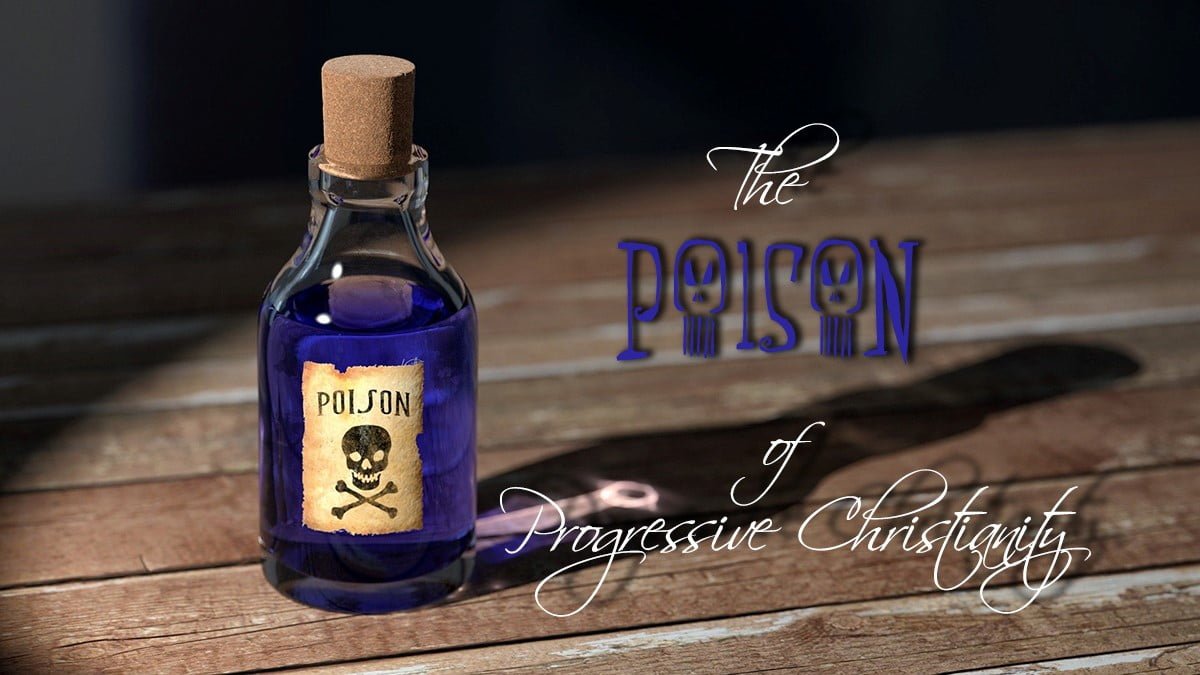E-Book PDF: Open in New Window | Download

Progressive Christianity is a movement that is outside historic Protestant theology. The movement grounds itself in a theology “from below”—namely a theology that focuses on how, according to progressive Christians, the Bible and one’s personal feelings come alongside each other. In direct contrast to this theology from below, the theology “from above” is the belief that God’s Word is reliable, trustworthy, for every area and every phase of life, and binding on all of life.
Progressive Christianity often focuses on social justice, environmentalism, women being pastors, etc. As a whole, Progressive Christianity casts aside inerrancy, believing that the Bible is riddled with error. They also emphasize “collective salvation” over personal biblical conversion. Collective salvation emphasizes the salvation of whole cultures, including socioeconomic structures.
At the end of the day, how Christians view the Bible matters. In recent years, we have seen the rise of unbiblical teachings (even demonic practices), such as the Enneagram and yoga in Christian circles. These ideas made headway first in progressive “Christian” circles because they don’t exercise any biblical discernment, and instead are constantly questioning whether the Bible is true and reliable. When you question and/or cast doubt on the authority of God’s Word, it is no wonder that such a movement that focuses mainly on things outside of biblical orthodoxy and then tries to call itself “Christian” is able to flourish.
In his classic book, Christianity and Liberalism, J. Gresham Machen once remarked that Christianity is a revealed religion. By emphasizing a theology from above, Machen pointed out that any religion that denies or dismisses the Bible is another religion entirely. Machen’s insight is salient since progressive “Christianity” is not biblical Christianity. It does not have an orthodox view of the Bible and salvation as a whole. Therefore, it is right and proper to say that it is not biblical Christianity.
Recently, progressive “Christians” have tried to get a popular hymn titled, “In Christ Alone”, by Keith and Kristyn Getty changed so that the words “the wrath of God” would be removed from the hymn. Thankfully, the Gettys refused to do this. Likewise, before the issue with the Gettys’ song, the Emergent Church movement in the 1990s and early 2000s demonstrated that progressive Christians don’t believe in the wrath of God. But it is the wrath of God the Father that was placed on the Son to pay the penalty of our sins in our place. Without the outpouring of this wrath of God the Father against the Son, there is no forgiveness of sins. And this is precisely why having a theology from above is so vital. And it’s also vital because having a right view of the Scriptures will lead to having a right and biblical view of salvation, the person and work of Christ, and much more.
Progressive “Christians” want a “Christianity” that suits their wishes, but not what the Bible describes and defines. Wayne Grudem is right when he says, “One of the foundational commitments of theological liberalism is viewing the Bible as merely a human book.”[i] However, the Bible isn’t merely a human book. It isn’t a book of fairytales and myths. The Bible isn’t full of errors and contradictions. The Word of God is reliable, trustworthy, for every phase of life, and binding on the life of God’s people.
You’ll discover the dangers of progressive “Christianity” and why it is another religion in this issue of Theology for Life. Along the way, your faith will be strengthened by a theology from above that will help you to ground it in the Word of God.
In Christ Alone,
Dave Jenkins
Executive Editor, Theology for Life Magazine
[i] Wayne Grudem, Systematic Theology Second Edition (Grand Rapids, Zondervan, 2020), 78.












